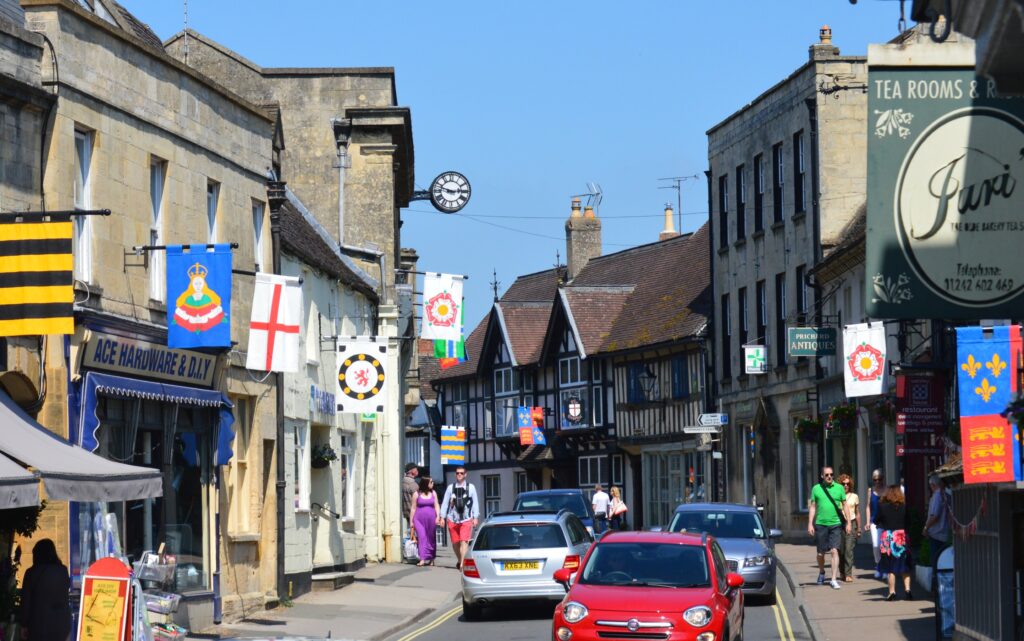 Julie Ingram and Kenny Lynch (School of Natural and Social Sciences, University of Gloucestershire) are leading a Tri-lateral Researcher Links Workshop in Stellenbosch, South Africa, from 29th September to 1st October, thanks to funding secured earlier this year from the UK’s Newton Fund to work with researchers from Egypt and South Africa on understanding water and food security issues, supported by a British Council Researcher Links award.
Julie Ingram and Kenny Lynch (School of Natural and Social Sciences, University of Gloucestershire) are leading a Tri-lateral Researcher Links Workshop in Stellenbosch, South Africa, from 29th September to 1st October, thanks to funding secured earlier this year from the UK’s Newton Fund to work with researchers from Egypt and South Africa on understanding water and food security issues, supported by a British Council Researcher Links award.
Julie and Kenny will be leading this 3-day workshop, together with colleagues from Stellenbosch University  and the American University Cairo, to develop understanding of how new methods in ecosystem services can help secure our water and food security. The workshop is taking place at Wallenberg Research Centre in Stellenbosch.
and the American University Cairo, to develop understanding of how new methods in ecosystem services can help secure our water and food security. The workshop is taking place at Wallenberg Research Centre in Stellenbosch.

The workshop title is “Equipping early career researchers with tools for evaluating ecosystem services which underpin food and water security” and it aims to equip early career researchers from South Africa, Egypt and the UK with the conceptual and analytical tools for evaluating ecosystem services (ES) and for demonstrating their importance when considering development actions. Over 30 invited participants from Egypt, South Africa and UK will be attending.
Julie said,
“Human well-being depends on the services provided by nature, but these are under increasing threat from climate change, land degradation and resource depletion These ecosystem services (supporting, regulating, provisioning and cultural) underpin food and water security and are essential to people’s livelihoods, especially in Africa.”
Kenny added,
“The challenges of evaluating and managing these services in natural and agricultural systems are complex, and beyond the scope of a single field of research such as economics, geography, soil science or biology. Instead they require interdisciplinary evaluation methods which combine scientific and social science approaches. The aim is to develop a cohort of young researchers, able to evaluate these issues, and ensure this kind of research is effective, relevant and applicable to poorer populations whose livelihoods are dependent on their environments and the services they provide.”
The workshop will give the researchers a chance to share their research findings, discuss ideas for future research, meet experienced researchers and take part in some site visits to research locations where food and water security are being actively researched.
You can follow the workshop on Twitter as Kenny will be tweeting updates during the day.

WORKSHOP PROGRAMME
DAY 1 – EVALUATING ECOSYSTEM SERVICES –CONCEPTS
09.00 Arrival and registration
09.00 Welcome address
09.15 Interactive session – icebreaker (Speed dating)
09.45 Presentation Keynote 1 Ecosystem services and food and water security – the need for novel research approaches. Dr Kenny Lynch
10.30 Coffee
11.00 Interactive session – Mini Posters 1 Participants will have the opportunity to talk about their research
12.30 Lunch
14.00 STIAS Dr Christoff Pauw, Programme Manager, Stellenbosch Institute for Advanced Study (STIAS) will present research and opportunities at STIAS
14.45 Presentation- Keynote 2 – Case study: Water-soil-productivity relationships in the Nile delta and threats to the sustainability of this intensive agricultural system. Dr Richard Tutwiler
15.30 Tea break
16.00 Funding opportunities – British Council representative
16.45 Interactive session – Mini Posters 2 participants will have the opportunity to talk about their research
17.30 Finish
DAY 2 DEMONSTRATING TOOLS AND METHODS IN THE FIELD
Field trip – 08.30 Depart guest house, Stellenbosch 09.00 Visit Kayamandi Coop projects for brief tour 11.15 Visit Nekkies Wetland – collaborating with different government and NGOs involved with wetland conservation, sustainable livelihoods and food security 2.15 Visit Franshhoek, comprising Franschhoek Water Hub, a biomimicry centre that is currently being prepared (UCT). 4.30pm Arrive back in Stellenbosch
DAY 3 BUILD ON DAYS 1 AND 2 AND SCOPE FUTURE OPPORTUNITIES
09.00 Interactive session – Mini Poster 3 participants will have the opportunity to talk about their research
10.30 Coffee
11.00 Presentation keynote 3- What is the potential of earth observation (EO) for monitoring ecosystems at national, regional and local scales? Professor A van Niekerk
11.45 Scoping joint research proposals and publications
12.30 Lunch
14.00 Interactive session – Methods market 6 participants ‘sell’ their methods to participants who rotate in groups around the room.
15.30 Tea break
16.00 Scoping joint research proposals and publications -feedback
16.45 Review of workshop, evaluation and finish




